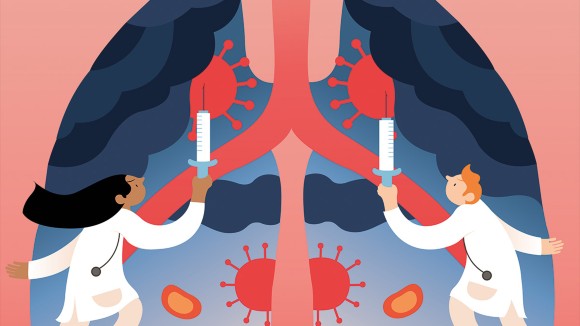This Nature Outlook is editorially independent, produced with financial support from a third party. About this content.
Nature is pleased to acknowledge financial support from Moderna in producing this Outlook. The sponsor retains sole responsibility for the following message.
In over 10 years since its inception, Moderna has transformed from a research-stage company advancing programs in the field of messenger RNA (mRNA), to an enterprise with a diverse clinical portfolio of vaccines and therapeutics across seven modalities, a broad intellectual property portfolio in areas including mRNA and lipid nanoparticle formulation, and an integrated manufacturing plant that allows for rapid clinical and commercial production at scale. The Moderna vaccine franchise aims to leverage mRNA technology to address major health burdens, including respiratory infections. Respiratory infections are a top cause of death globally with highest burden in the young, old, and immunocompromised. To learn more, visit www.modernatx.com.


